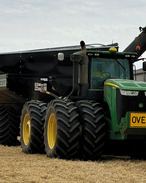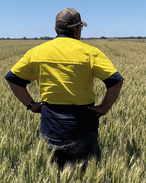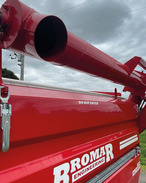This article is 7 years old. Images might not display.
Producers can benefit from three biosecurity projects worth more than $250,000 to protect the industry from plant pests and to open up export opportunities.
Deputy Prime Minister and Minister for Agriculture and Water Resources, Barnaby Joyce, said the $88,000 in funding from Plant Health Australia will develop a National Citrus Biosecurity Surveillance Strategy so governments and industry can coordinate pest surveillance and detection efforts.
“The Australian citrus industry is free from many significant pests that impact production and trade, maintaining this and ensuring earlier detection of incursions will help to limit their spread and minimise the costs of eradication,” Minister Joyce said.
“This strategy will also provide ongoing evidence to demonstrate area freedom from pests, to support new market access requests and the maintenance of existing markets, boosting exports,” he said.
“Many of our trading partners require evidence of our strong biosecurity and freedom from pests and diseases to allow our produce into their country.”
Member for Mallee, Andrew Broad, said the government has funded Australian Vignerons with $88,000 to develop a National Phylloxera Management Plan to provide consistency in how this pest is managed across the country.
“Through strict biosecurity management, large parts of New South Wales and Victoria—including Mildura—and Queensland remain free of this damaging pest and we want to keep it that way,” Broad said.
“The national arrangements under the plan will help protect Mildura growers by containing the pest to its current locations, with improved surveillance to help detect and quickly respond to any potential incursions,” he said.
Agriculture Victoria has also been funded $75,000 to streamline contingency plans for exotic plant pests. Broad said strengthening plant biosecurity would deliver benefits across the Mildura region.
“The Mildura region is a significant player in the horticulture industry, responsible for 75 per cent of Australia’s table grapes, 98 per cent of Australia’s dried grapes, 20 per cent of Australia’s wine crush and 24 per cent of Australia’s citrus,” Broad said.
“We are reliant on Australia’s strong plant biosecurity system, and this work to ensure early detection of pests or diseases, better management and evidence to support pest area freedom is hugely important,” he said.
For more information click HERE.






















